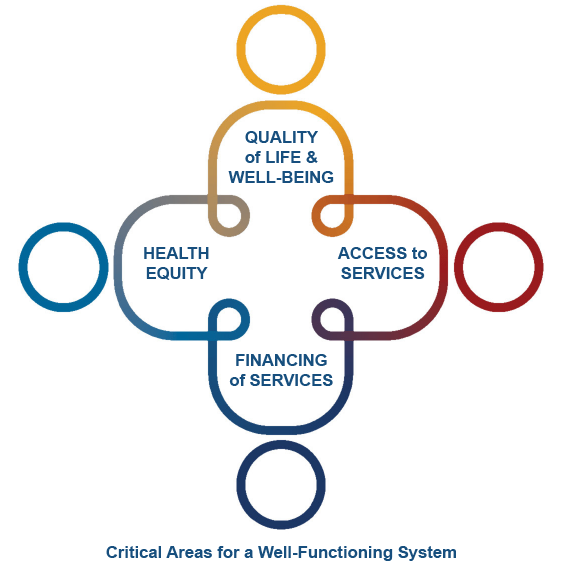In this Guide you will find: Family Support Activities & Family Learning Outcomes for families with children who are Deaf/Hard of Hearing (D/HH)
Parent-to-parent support can be described as a supporting parent providing their lived experiences to a learning parent. Included in this resource, you will find family learning outcomes and family support activities developed by a group of Hands & Voices Guide By Your Side (GBYS) Coordinators and Parent Guides within the context of a researched and evidence-based parent-to-parent support framework. This framework was established by researchers from University of Western Ontario, London Ontario, Canada.
(Rebecca J. Henderson, Andrew Johnson, Sheila T. Moodie)
Hands & Voices utilizes these family learning outcomes and family support activities to guide family support work by embedding them within the training curriculum. The Conceptual Framework constructs and components will be utilized to guide and measure the impact of family support. Hands & Voices recognizes that this list of family support activities is not an exhaustive list but can provoke thoughts and ideas of areas that impact the learning parent’s well-being, knowledge, and empowerment.
The Conceptual Framework consists of what is called constructs and components. The constructs and components are presented in the framework through a closed helix visual design with the supporting parent and the learning parent at opposite curves. The “learning parent” is characterized as having a child recently identified as Deaf or Hard of Hearing or could also be a parent who is experiencing something new in their journey of raising a child who is Deaf or Hard of Hearing. The “supporting parent” has lived experience of having a child who is Deaf or Hard of Hearing and training in supporting other parents. The helix represents the exchange of information between the two parents. Connectedness and contribution describe the underpinnings of the relationship between the two parents. The constructs are the overarching themes and the components are the key elements of the specific learning needs of the learning parent.
The Conceptual Framework: Constructs and Components in context to the supporting parent and the learning parent.
This document lists potential family learning outcomes for each of the constructs and includes family support activities that can assist the learning parent in reaching outcomes that support their family’s needs. This list is not intended to be completed in its entirety. The desired family learning outcomes of the learning parent drive the selection of the family support activities.

The Maternal Child Health Bureau (MCHB) Blueprint for Change: A National Framework for a System of Services for Children and Youth with Special Health Care Needs establishes a national agenda to ensure that every child gets the services he/she needs to play, go to school, and grow up to become a healthy adult. The Blueprint for Change outlines strategies in four critical areas: health equity; quality of life and well-being; access to services; and financing of services. The family support activities in this guide are intended to be facilitators to address challenges families may face in the four critical areas.
It is vital that families with children who are D/HH have access to high quality, equitable, up-to-date, and evidence-based information that supports the parent’s/caregiver’s role in language acquisition of their children. Included in this guide are many family support activities that encourage parents/caregivers to engage in their children’s language and communication in order to optimize their development leading to children who can play, go to school, and grow up to become healthy happy adults.
Parent-to-Parent Support: Specially trained parents sharing their lived experience of raising a child who is D/HH with other families who have just learned of their child’s hearing condition, or who have older children and need the unique support that comes from someone else who has walked this path him/herself and can share from direct experience and wisdom.
Learning Parent: A parent who is new to or inexperienced in a situation of raising a child who is D/HH or may be experiencing a transition in the child’s or family’s life. The learning parent can be a parent, family member, caregiver, guardian, etc.
Supporting Parent: A coaching, nurturing, and encouraging parent (hearing, hard of hearing or D/deaf) who has the lived experience of parenting a child who is D/HH. May also be characterized as someone who is teaching, modeling, empowering, and mentoring.
Deaf/Hard of Hearing (D/HH) Guides, Role Models, Mentors: Individuals who are D/HH sharing their expertise through their lived experience. *See Hands & Voices D/HH Guidelines for more specific definitions for each role. https://www.handsandvoices.org/fl3/fl3-docs/D/HH-Guidelines.pdf
Deaf/Hard of Hearing (D/HH): The term used to describe all children and adults who are Deaf or Hard of Hearing from birth or later, unilateral, and bilateral, all degrees from minimal to profound, sensorineural, auditory neuropathy, conductive and mixed, DeafBlind, and D/HH plus additional health concerns.
* The individual development of children who are D/HH, especially those who are D/HH plus should be considered when choosing family support activities.